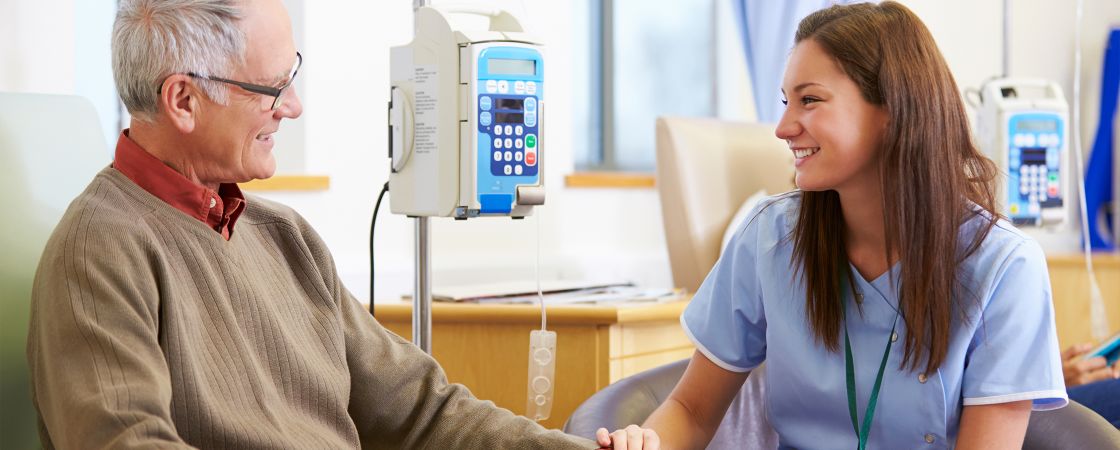Your Fight is Our Fight. Diagnosing & treating cancer in adults using chemotherapy, hormonal therapy, biological therapy and targeted therapy.
Search Bristol Health

Medical Oncology
Why It’s Done
A medical oncologist often is the main health care provider that will treat your cancer. A medical oncologist also gives supportive care and may coordinate treatment given by other specialists.
Types of Treatment
Your oncologist and your cancer care team may determine and recommend the use of medicine to help battle your cancer. These include:
Chemotherapy
Chemotherapy is used to cure, shrink and prevent cancer from spreading and to relieve symptoms caused by the disease. Depending on your type of cancer, chemotherapy can be administered in different manners. The length of your chemotherapy treatment is carefully determined by your doctor.
Immunotherapy
Immunotherapy is a type of cancer treatment that relies on the body's infection-fighting system (immune system) to get rid of cancer cells. Immunotherapy works by slowing the growth of cancer cells, preventing them from spreading and boosting your immune system’s ability to fight off the cancer cells.
Hormone Therapy
Hormone therapy uses a combination of drugs and treatments to lower the levels, or block the action, of estrogen and progesterone in females, aiding in slowing the growth of many breast cancers. Hormone therapy has been proven to reduce the likelihood of the cancer returning following surgery.
Targeted Therapy
Targeted therapy uses drugs to stop cancer growth and spread. It does so with less harm to normal cells than other treatments. Targeted therapy drugs work in a few different ways, including turning off the process in cancer cells that cause them to grow, triggering cells to die on their own and directly killing cancer cells.
How to Prepare
Your oncologist and team will guide you through the planning process, answer your questions and give you input on what to expect going forward. We encourage all our patients to ask questions. You can also ask a family member or friend to accompany you so that you have their support as well.
What to Expect
Your oncologist will explain the medication you'll receive, including potential side effects, and provide guidance on what to expect during treatment. Fatigue is a common experience after your session, and we recommend taking the next day to rest. This allows your body time to recover and respond to the treatment. The duration of your session will be carefully determined by your doctor based on your specific case.
How Can We Help?
Can't find what you're looking for, or just need a little more information. We're happy to help. Make an appointment by calling 860.585.3400 or feel free to reach out with questions.